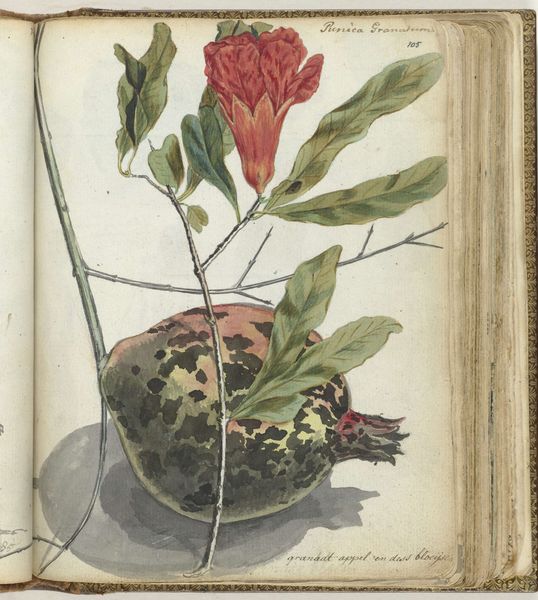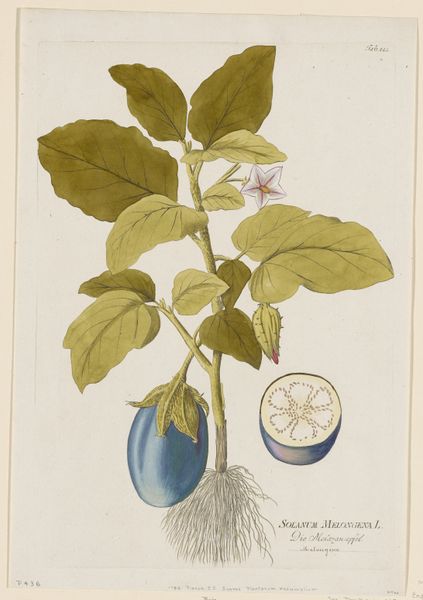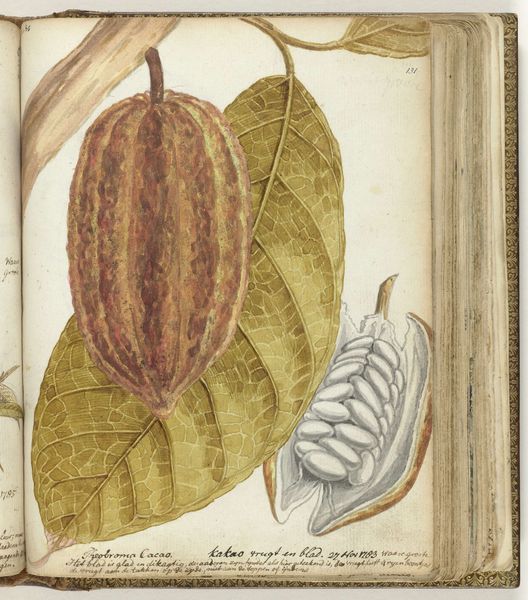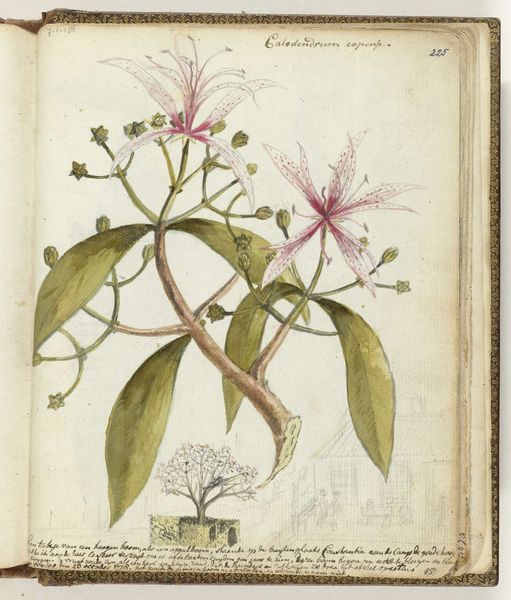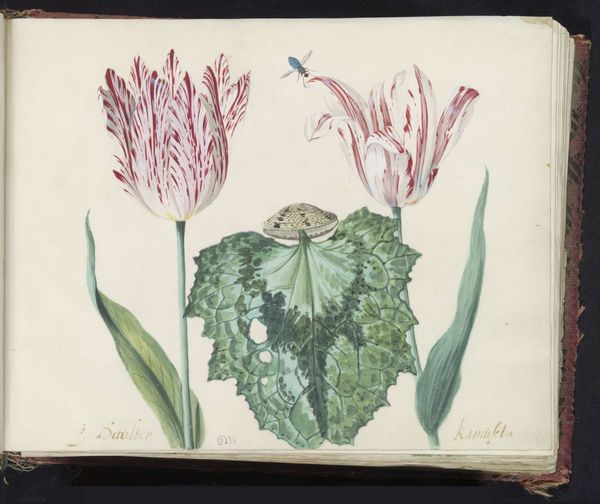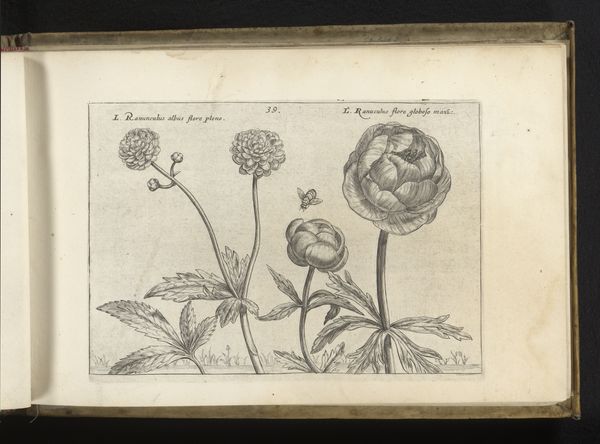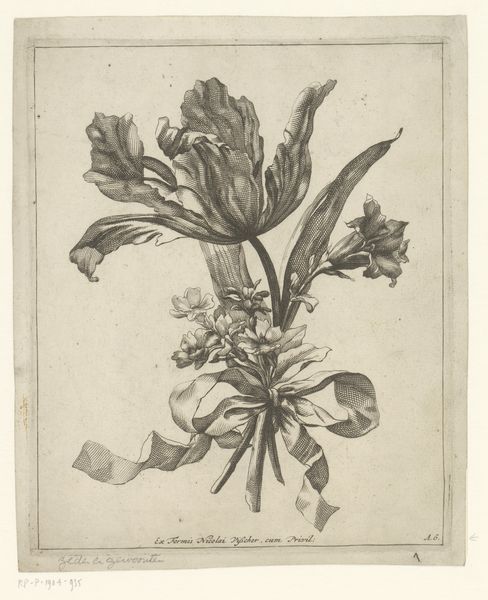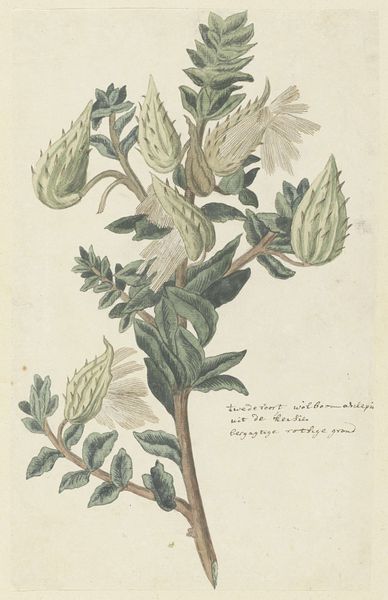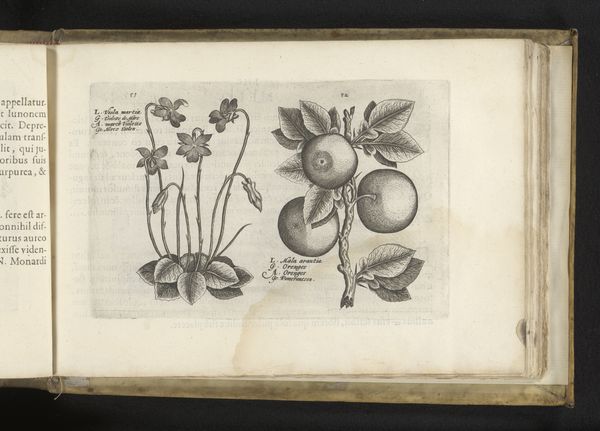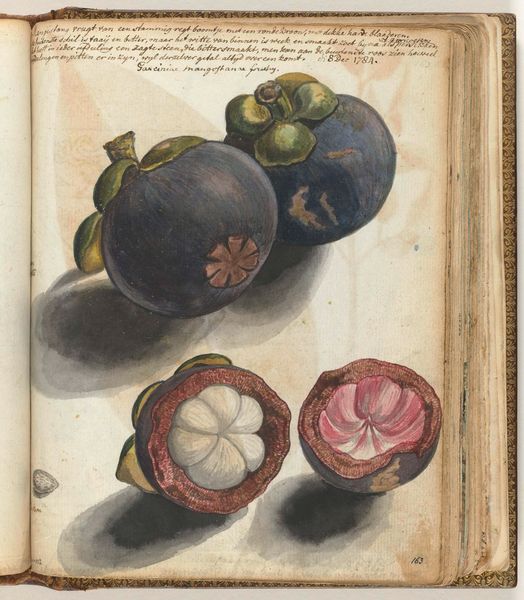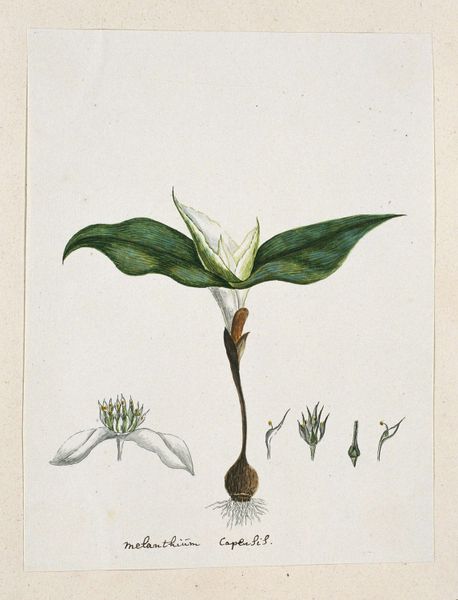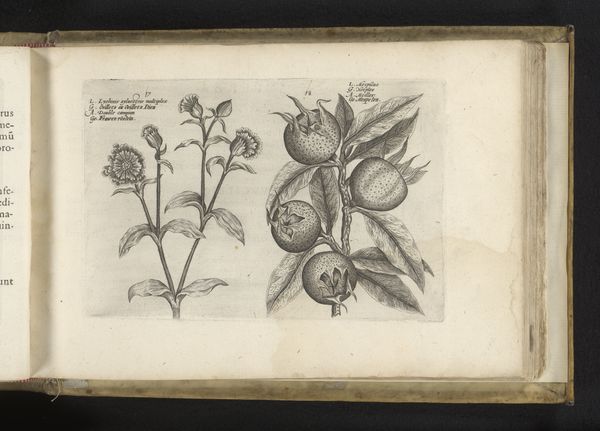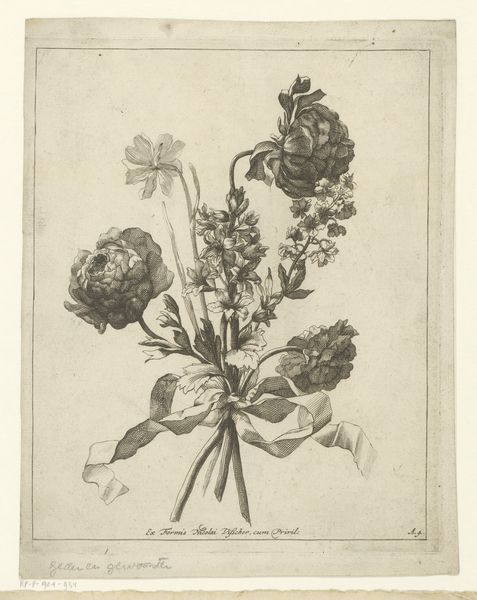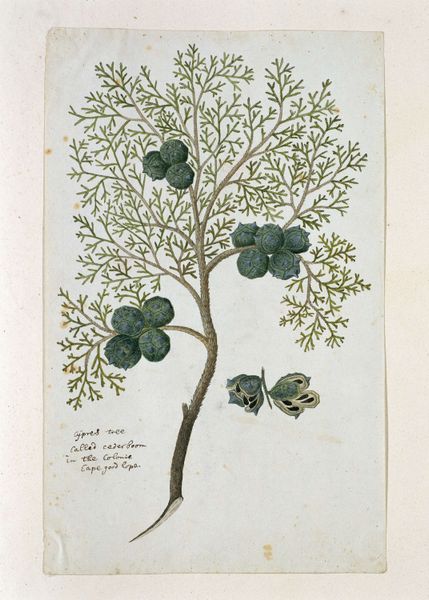
Dimensions: height 195 mm, width 155 mm
Copyright: Rijks Museum: Open Domain
Jan Brandes created this watercolor of a Cape watermelon and gladiolus in 1786. Brandes was a traveler and artist in the service of the Dutch East India Company, an organization whose global trade practices shaped the world we know now. This image, which depicts a watermelon and gladiolus flower, is more than just a pretty picture. As an employee of the VOC, Brandes was part of a colonial system that extracted resources from the Cape. Watermelons, indigenous to Africa, and gladiolus flowers, native to South Africa, become stand-ins for the complex relationships between colonizers and the colonized. Brandes' meticulous rendering of these plants reflects a desire to document and classify the natural world, a common practice during the Enlightenment. This watercolor shows a moment in time marked by exploration and exploitation. Brandes’ work invites us to reflect on the legacy of colonialism and its lasting impact on the land and its people.
Comments
No comments
Be the first to comment and join the conversation on the ultimate creative platform.
